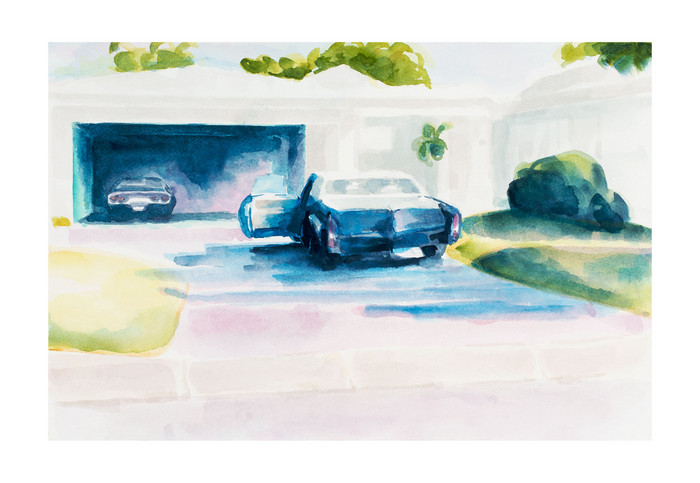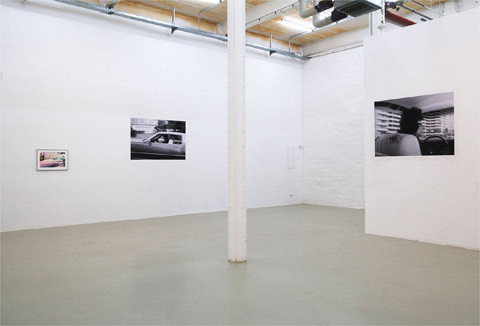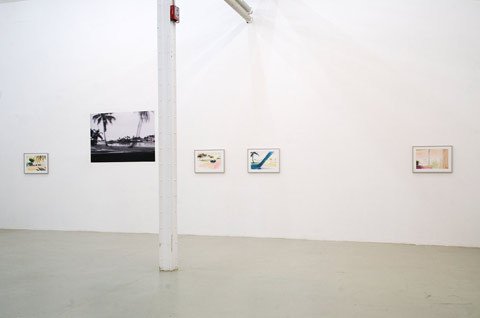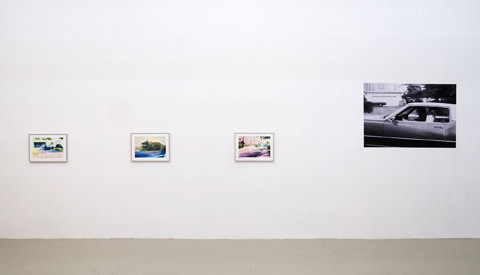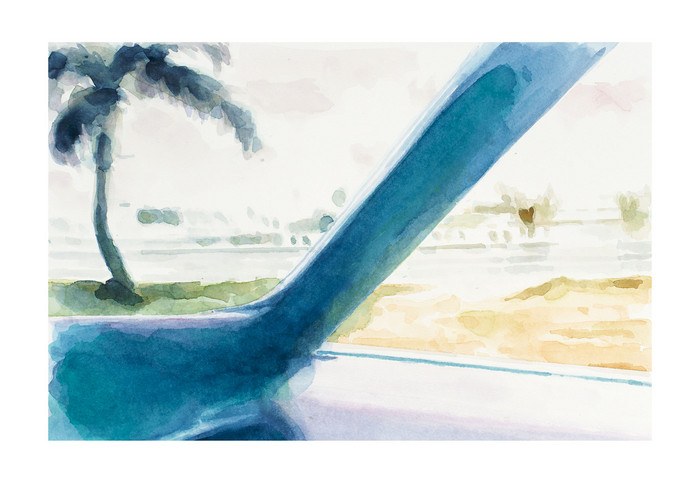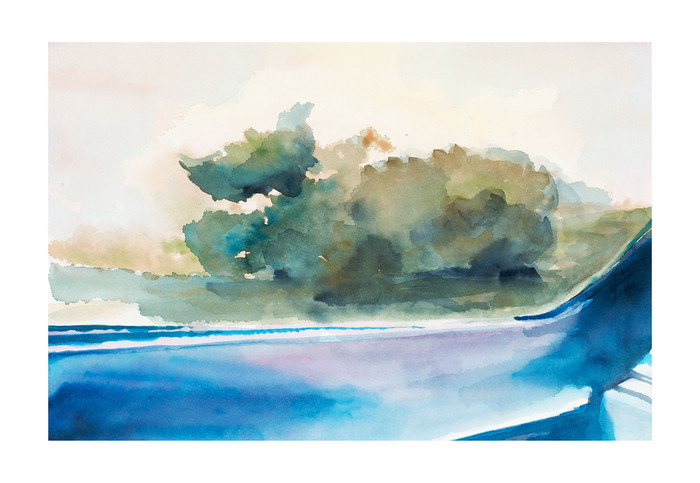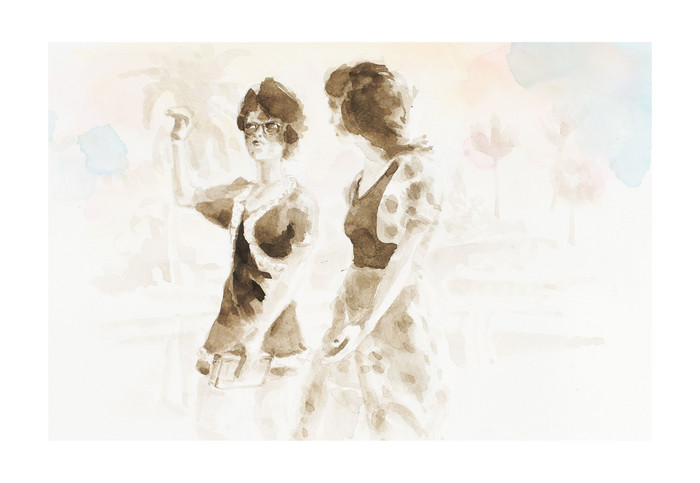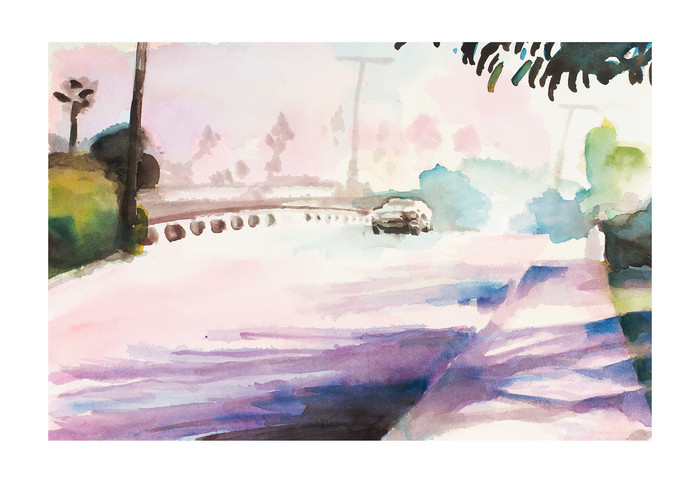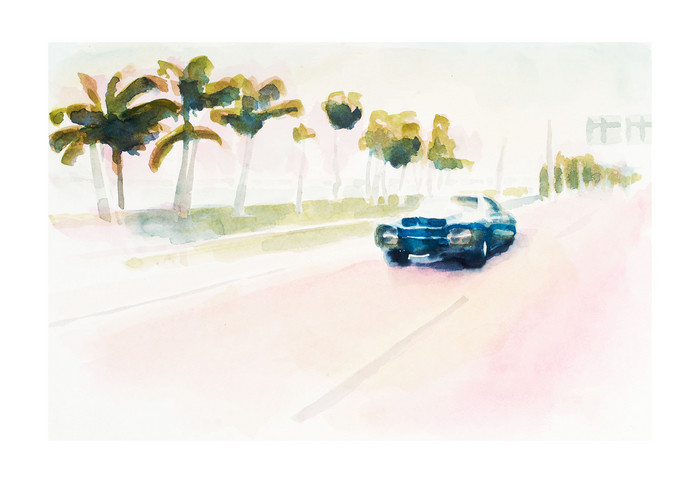Stefan Fischer QUIT DAYS IN MALIBU
22 Jan - 12 Feb 2011
21 miles of coastline, surfers’ beaches, home to movie stars, setting for a multitude of TV series ... and running right through this, the Pacific Coast Highway.
With the choice of the work’s title, Stefan Fischer places his pictures – narratively conceived, definitely American views, painted from a camera eye’s perspective – within this strangley clichéd setting. The rough black and white prints refer to the source of the images, the smaller scaled watercolor paintings retain the soundlessness of film stills and seem to envelope what is depicted in pigmented cotton.
The stringently selected, re-appearing objects are not of the kind we are accustomed to perceive in watercolors. The focus on shadows and light effects, however, is more or less a formal standard in the artist’s repertoire. In his recent work a splitting up of signs is to be observed, a joyful pulling to pieces of signifiers and signifieds. As is often the case in Fischer’s work the subject matter, along with everything else gathered in the pictures, is not self-explaining. Even the title leads the observer onto a duplicitous track. The imagery with its American cars, bits of highways, palm trees, and one-story suburban structures does not establish a specific topography. On the contrary, it rather serves as a deliberately conceived model topography. And with regard to its symbolic and semantic capacity it is deployed in the same way as the actual source of the images: the infamous and dubious porn movie ›Deep Throat‹ from the early seventies. Thus all the details and references in the pictures resonate with how they have been exploited in both art and film, with all this ›already seen‹ as well as with the history of their effects and reception – we know these things, yet, we are not able to pin them down.
In Malibu life may be easy and quiet, at least most of the time – except when the place is haunted by storms, or overrun by fires, or mudslides.
With the choice of the work’s title, Stefan Fischer places his pictures – narratively conceived, definitely American views, painted from a camera eye’s perspective – within this strangley clichéd setting. The rough black and white prints refer to the source of the images, the smaller scaled watercolor paintings retain the soundlessness of film stills and seem to envelope what is depicted in pigmented cotton.
The stringently selected, re-appearing objects are not of the kind we are accustomed to perceive in watercolors. The focus on shadows and light effects, however, is more or less a formal standard in the artist’s repertoire. In his recent work a splitting up of signs is to be observed, a joyful pulling to pieces of signifiers and signifieds. As is often the case in Fischer’s work the subject matter, along with everything else gathered in the pictures, is not self-explaining. Even the title leads the observer onto a duplicitous track. The imagery with its American cars, bits of highways, palm trees, and one-story suburban structures does not establish a specific topography. On the contrary, it rather serves as a deliberately conceived model topography. And with regard to its symbolic and semantic capacity it is deployed in the same way as the actual source of the images: the infamous and dubious porn movie ›Deep Throat‹ from the early seventies. Thus all the details and references in the pictures resonate with how they have been exploited in both art and film, with all this ›already seen‹ as well as with the history of their effects and reception – we know these things, yet, we are not able to pin them down.
In Malibu life may be easy and quiet, at least most of the time – except when the place is haunted by storms, or overrun by fires, or mudslides.

